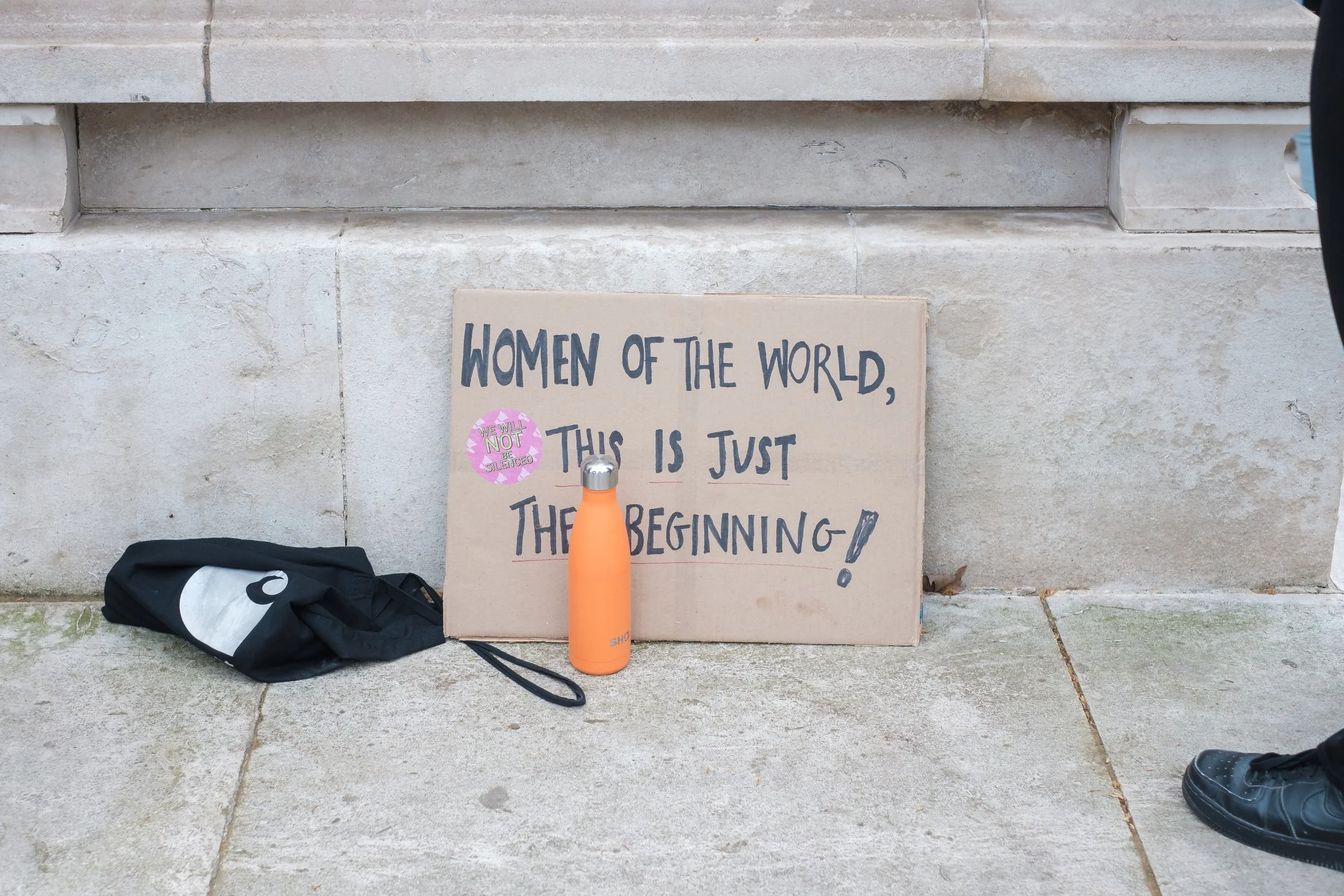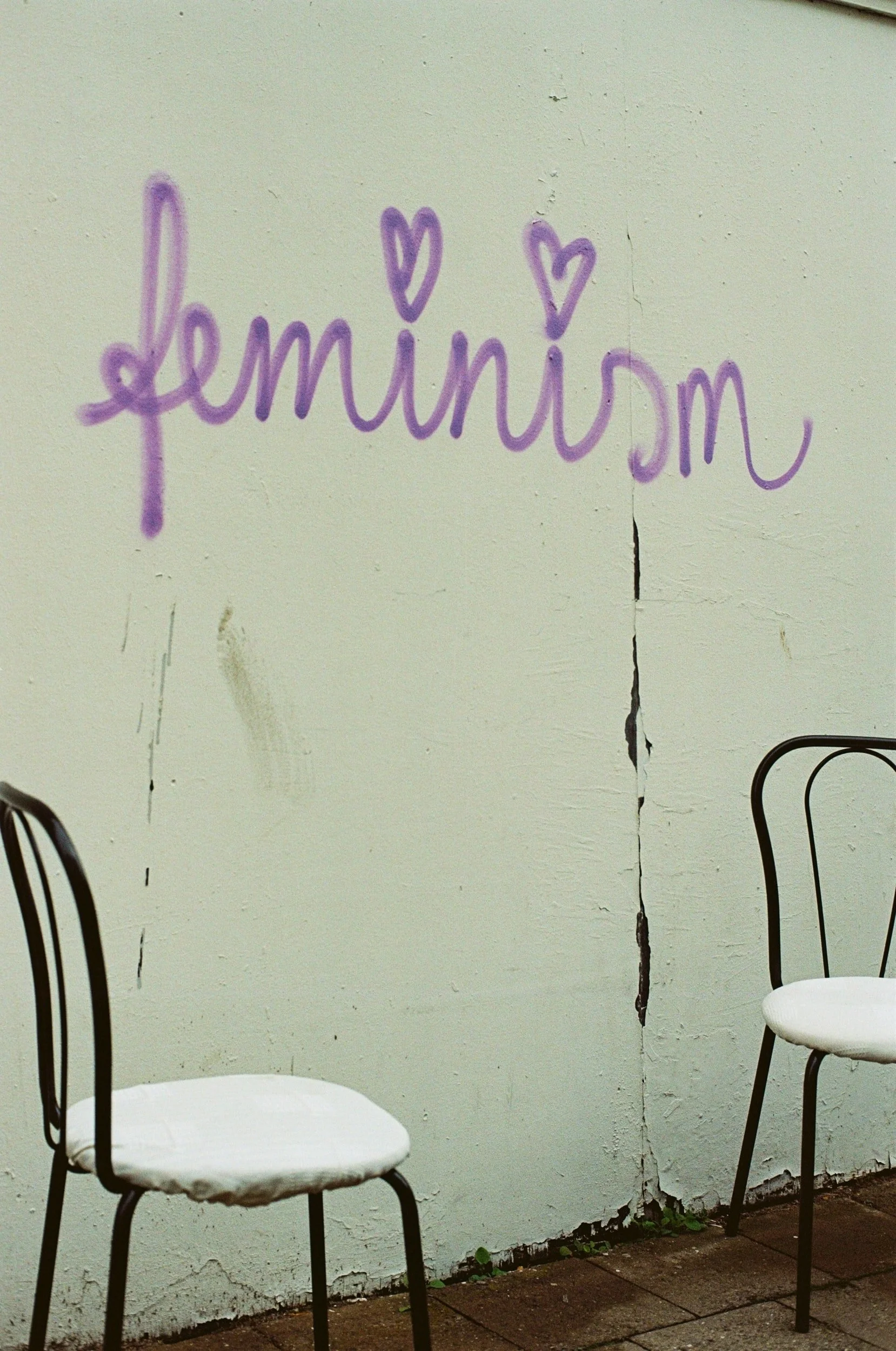Unfair Feminist Criticism: What It Looks Like & How To Respond (Part One/Three)
Teyah Nichole
SHARE ON:
Feminism for marginalized women isn't easy, and I don't think it's talked about enough. Conversations about feminism are often centered around inclusivity and the need to be involved. Still, very little energy is spent giving marginalized women practical tools and resources for navigating the complicated space of being a self-identified feminist.
This post is the first of a three-part series that aims to help fill that gap by delving into the commonalities of unfair feminist criticism and how marginalized women might want to respond to such occurrences. Be sure to like and share this post with all the women in your life, and subscribe to get more conscious living, women-focused content just like this!
'What Do I Mean By “Unfair” Feminist Criticism?
Existing as a self-identified feminist operating in a patriarchal world isn't easy. This is especially true when you're a marginalized woman. Feminist criticism becomes a part of your everyday life (and it's exhausting).
Often, it seems as if any and everything you do is judged on impossible standards of perfection defined by what's best for people who have no idea what it's like for you to operate in this world and/or have any genuine commitment to making the world better for women.
Luckily, racialized women have made space for the grey that is feminism, understanding that your validity as a feminist isn't about perfection but being wholeheartedly committed to the cause and simultaneously understanding that it's impossible to do everything right all the time.
Roxanne Gay's collection of essays in Bad Feminist, Mikki Kendall's Hood Feminism: Notes From The Woman White Feminism Forgot, and Joan Morgan's When Chickenheads Come To Roost immediately come to mind. These texts were essential in my growth in becoming more comfortable operating within the complexities that my intersection as a racialized woman feminist brings.
With this comfort came confidence and the ability to know when people's negative perceptions of my positionality as a feminist were rooted in their internalized (or explicit) disdain for my right to exist. In other words, I can now better discern when people are simply angry with me for being a racialized woman with an opinion than actually having fair, reasonable reservations about some of my views.
This is what I define as unfair feminist criticism. Criticism rooted in thinking that feminism is a uniform doctrine that lacks nuance, variety, and multifacetedness. It is characterized by positions that find fault in a racialized woman's feminist beliefs or views unsupported by empirical evidence and/or any actual, unselfish commitment to feminist politics or priorities as a whole.
When you're a newbie feminist, spotting this type of behavior isn't as easy. When you're new to something and have less experience in the space, it's common to need time to work around what feminism means and looks like. The more intersections you operate within (i.e. race, ethnicity, class, etc.), the more involved this process becomes.
As a way to both help my fellow newbie feminists and keep a record of where I'm at in my own feminist journey, I've decided to make a series about the common feminist criticisms I receive as a racialized woman and why I think they're unfair and completely uninformed by the material realities of what racialized women go through and deal with regularly.
Hopefully, this post can be an eye-opener for those who identify as feminists but struggle with the inevitable complications that arise when putting it into practice.
Unfair Feminist Criticism Example #1:
“If you're a feminist woman who dates men, you should go dutch. Otherwise, you're being unfair!”
How I Respond:
For starters, I acknowledge that going dutch, "splitting the bill 50-50", or dividing the financial burden of the relationship entirely down the middle is a well-established debate within the heteronormative dating realm. Most men and women (dating heteronormatively) most likely have a developed opinion on the issue, regardless of their explicit political affiliation or self-identification. My point here is that I get this isn't necessarily a debate unique to feminist/progressive circles.
Regardless, it's singlehandedly the most common criticism I've received to date about my feminist politics as a woman who will never (and has never) paid for a date. It's also, oddly, a criticism I've received equally from men and women, which makes this unfair feminist criticism even more peculiar to me.
“This brings me to my first issue with this type of criticism: its popularity and assumed validity are entirely uninformed by racialized women's everyday material reality.”
Equal pay within dating is nowhere near a priority on the overall feminist agenda; at least it shouldn't be. While cishet white women have overwhelmingly enjoyed the spoils of both late capitalism and modern feminism in the last century in the US, marginalized women and allied genders have not been as lucky. In fact, cishet white women have collectively gained exponentially more in terms of overall wealth, access to education, access to healthcare, and life expectancy compared to their non-white, queer, and/or trans counterparts.
Alongside, it's also clear that marginalized women, like myself, are more often than not dealing with a plethora of more pressing issues like homelessness and poverty, exposure to violence, physical and mental health problems, and many other things that threaten their overall safety and security. There is admittedly a complex array of approaches when it comes to trying to address these issues that are all valid in their own ways. Yet, people are still most interested in my opinions on something as trivial (when put into perspective to what women who share my intersections and those adjacent deal with writ large) as who's going to pull out their AMEX at the restaurant.
This brings me to my first issue with this type of criticism: its popularity and assumed validity are entirely uninformed by racialized women's everyday material reality. I believe that anyone conscious of the above data detailing the extent of the crap marginalized women deal with daily would not feel inclined to judge my position. Marginalized women go through enough, and perhaps we want our dating lives to not reflect that? I would go even as far as to argue that my not paying for dates is a small-scale form of reparations and wealth redistribution.
Still, let's pretend that those hurling such statements were. Odd, but probably not impossible. I next ask such people to next consider the difference between equality and equity. Equality describes a state of sameness, whereas equity describes a state of fairness. Women, especially racialized women, are not walking into a date with a man coming from a state of the same shared social experiences, expectations, etc., so why should they go into a date expected to act if this is true?
In heteronormative relationships, women are expected, directly or indirectly, to work for free. Whether it's the act of birthing children and raising a family, maintaining a home, and being responsible for almost all of the emotional labor in the household, women tend to do the bulk of this work without any sort of capital compensation whatsoever. Women's "invisible" contributions to society are notoriously left out of GDP calculations, with feminist economists estimating that women's free labor accounts for around $10,900,000,000,000 of total global wealth.
Yet, people who are often critical of me for not paying for dates have little to no interest in acknowledging this fact, or how much more women in heteronormative relationships collectively contribute to their romantic partners and society than their cishet male counterparts.
This is not to say that women should never pay for a date or have the desire to go 50/50 or that men's anxiety toward having to be financial providers isn't valid. Instead, it's to say that marginalized women who chose to do otherwise or not involve themselves with men romantically who cannot financially provide shouldn't be made to feel they are single handily destroying the feminist cause. The emphasis here is choice: women should be able to make personal choices that only impact them without the collective judgment of other people, especially people not committed to making the world better for them in any proactive way.
Dating should be fun, and women should be able to find partners that align with their shared visions for the future. Although it regularly is, it shouldn't be a space where women's rights and the feminist agenda are used as a scapegoat to discipline women and discourage them from advocating for themselves within romantic settings. No one is entitled to a woman's body, and she has every right to decide for herself what are her barriers to entry (no pun intended!) without judgment.
Head over to read part two and stay tuned for part three, where I talk about two other unfair feminist criticisms:
Unfair Feminist Criticism #2: "Women should do more to include men in feminism! Men shouldn't be made to feel as if they're not icluded: they benefit from a more feminist world as well!"
Unfair Feminist Criticism #3: "Racialized, Trans, and other marginalized women shouldn't want/need feminist spaces that are just for them. It creates unnecessary division between feminists and that is hurtful to the overall feminist agenda!"








